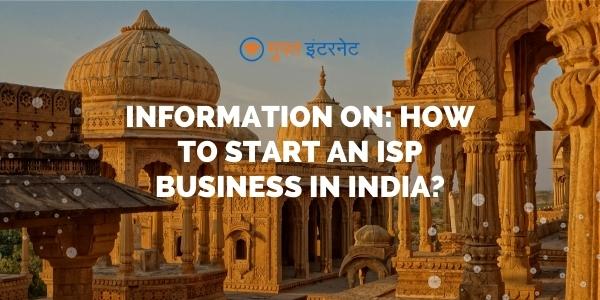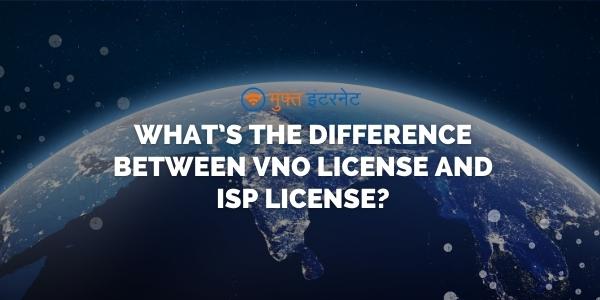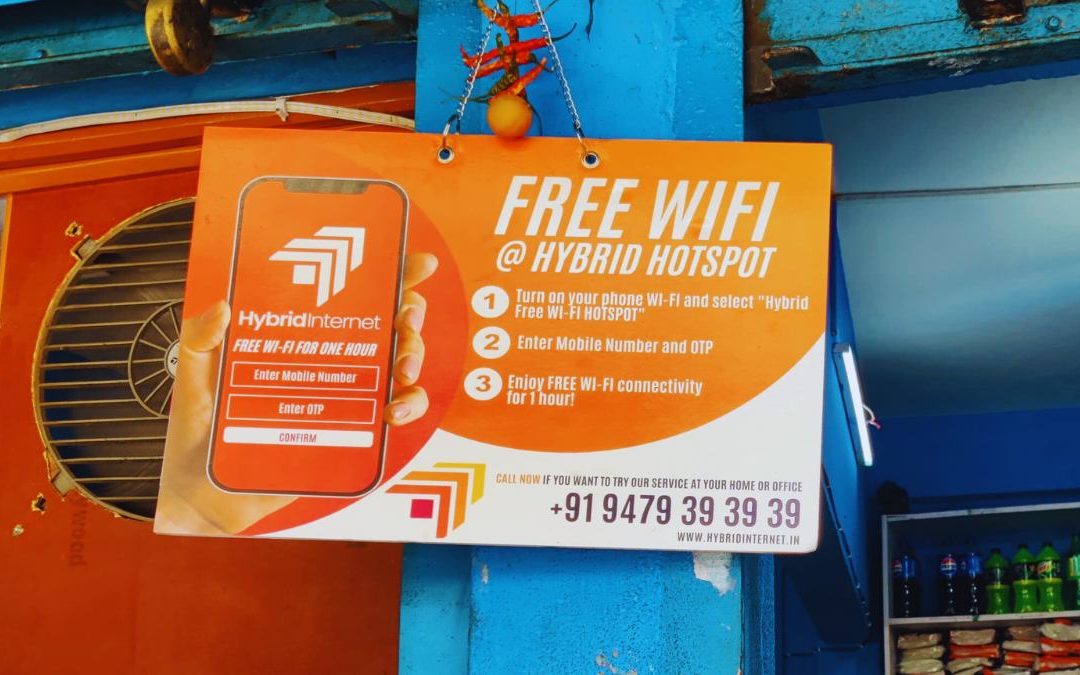
by pazmuft | Jan 24, 2024 | How to Become an ISP |
Getting an ISP business on its feet already faces its challenges, and especially so when it is located in a rural and underdeveloped area. Here at Muft, we have compiled an array of tactics and plans to help you make your ISP business reach farther. Here’s a more detailed elaboration on each strategy:
- Local Community Engagement:
- Actively participate in local events, fairs, and gatherings to establish a visible presence in the community.
- Sponsor local sports teams, cultural events, or community projects to enhance brand recognition and build trust. This also ties in with word-of-mouth marketing, as it lets people without access to internet know about your business.
- Engage with local leaders and influencers to gain support and credibility within the community.
- Word-of-Mouth Marketing:
- Implement referral programs that offer incentives, such as discounts or free services, to existing customers who refer new subscribers.
- Encourage satisfied customers to share their positive experiences through testimonials, both online and offline.
- Collaboration with Local Businesses:
- Forge partnerships with local businesses to provide bundled services, creating mutually beneficial promotions or discounts for shared customers.
- Tap into existing local business networks to expand your reach and enhance the value proposition for customers.
- Educational Workshops:
- Host workshops on topics like basic internet skills, online safety, and the advantages of high-speed internet to empower the community.
- Position the ISP as an educational resource, fostering a positive image and increasing community engagement.
- Local Language Advertising:
- Craft marketing materials in the local language to resonate more effectively with the target audience.
- Use culturally relevant imagery and messaging to ensure that the advertising aligns with the values and preferences of the community.
- Door-to-Door Campaigns:
- Train a team to conduct personalized door-to-door visits, addressing concerns, and explaining the benefits of the ISP’s services.
- Gather feedback from potential customers to understand their specific needs and tailor offerings accordingly.
- Local Cable TV and Radio Ads:
- Utilize local cable TV networks and radio stations to reach a broad audience, taking advantage of traditional media in areas where these channels remain popular.
- Design ads that highlight the local relevance of the ISP’s services and their positive impact on the community.
- Social Media Presence:
- Establish and maintain an active presence on popular social media platforms in the area, sharing relevant content and engaging with the community.
- Use social media to address customer inquiries, showcase local events, and highlight the positive contributions of the ISP to the community.
By combining these strategies, village-based ISPs can create a comprehensive marketing approach that aligns with the specific needs and characteristics of their target audience.
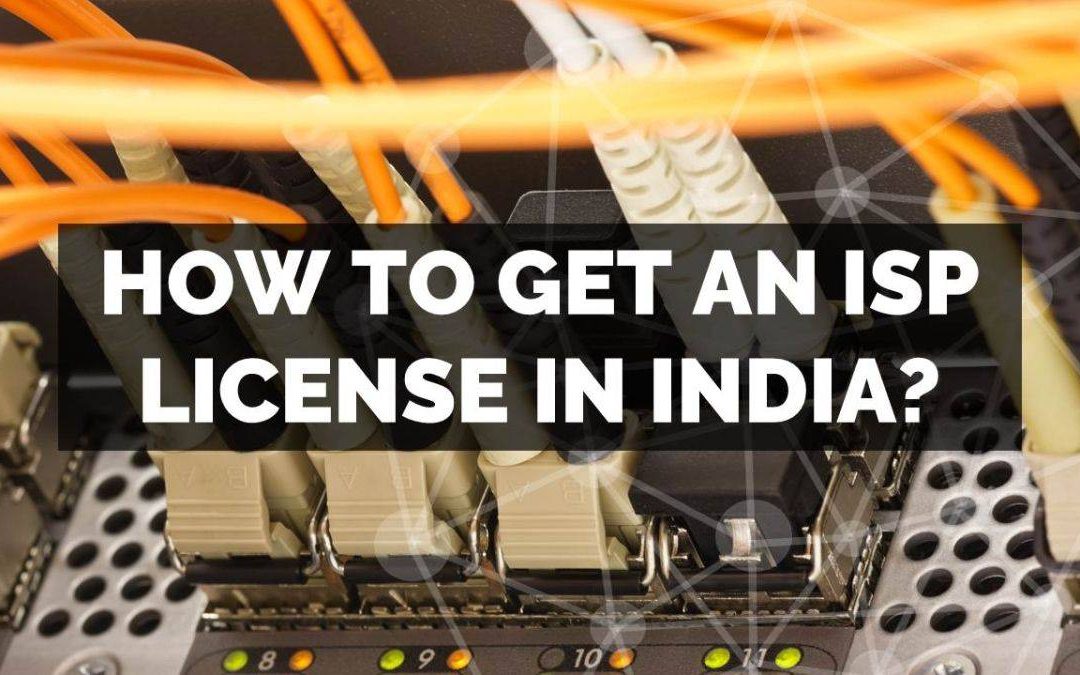
by Jinesh Parekh | Dec 19, 2016 | ISP License |
In this article we explain how to (apply for &) get an ISP license in India?
The Government of India has come up with one license for all telecom related services, known as a Unified License. Under unified license, the license holder can apply for ISP license for different areas. One must acquire a Unified License under which he will obtain Authorization for providing ISP services for a certain area such as providing internet for rural areas in India. Hence, it must be understood that there is no separate ISP license as such. Instead, one must obtain ISP Authorization under the Unified License.
One company can hold only one Unified License, but can apply for multiple ISP authorizations of different areas. However, the tenure of such authorizations will run concurrently with the tenure of the Unified License, which means that all authorizations will be valid only till the validity of the unified license.
One company can hold only one Unified License, but can apply for multiple ISP authorizations of different areas. However, the tenure of such authorizations will run concurrently with the tenure of the Unified License, which means that all authorizations will be valid only till the validity of the unified license.
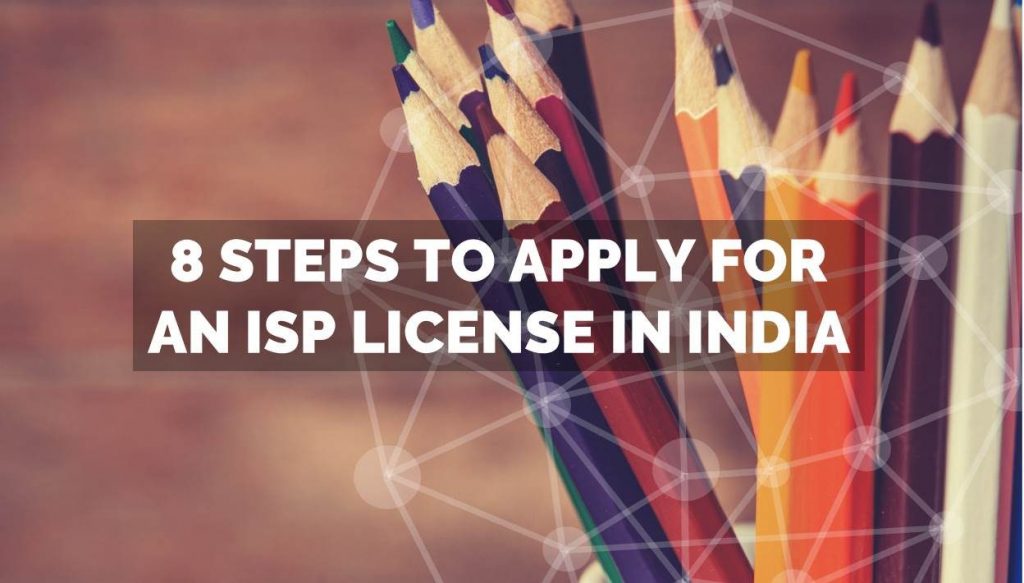
Step 1: How to (apply for &) get an ISP license in India? – Check Eligibility
To obtain an ISP license, you require a registered company under the Companies Act, 1956. You can log on to the Registrar of Companies’ website for more information on how to register a company if you haven’t already registered yours.
Step 2: How to (apply for &) get an ISP license in India? – Choose a suitable ISP license category to apply under
The next step to obtaining an ISP license is to know / decide which category of license you require – category A, B or C. Click here to know more about how to select the right category for your ISP License.
In India, there are 3 different categories of licenses to become an internet service provider, depending upon the City/State/Town/District/Village you want to start your ISP business in.
The 3 categories of ISP licenses are:
- Class A (National Area)
- Class B (Telecom Circle/Metro Area)
- Class C (Secondary Switching Area)
Naturally, a Class A ISP license would be quite expensive, followed by Class B & C respectively.
Step 3: How to (apply for &) get an ISP license in India? – Budgeting and Costing
To promote internet access in smaller towns, cities & villages, the Government of India has made a conscious effort to ease prices of a Class C license compared to a Class A or B license.
The following table will explain the financial entry conditions you require to fulfill in order to obtain a Class A/B/C ISP license:
| Service | Minimum Equity | Minimum Net worth | Entry Fee (Rs.) | Performance BG (Rs.) | Financial BG (Rs.) | Application Processing Fee (Rs.) | Total Capital Required (Rs.) |
| ISP “A” (National Area) | Nil | Nil | 30 Lakh | 40 Lakh | 2 Lakh | 50 Thousand | 72,50,000 |
| ISP “B” (Telecom circle/Metro Area) | Nil | Nil | 2 Lakh | 2 Lakh | 20 Thousand | 15 Thousand |
4,35,000 |
| ISP “C” (SSA) | Nil | Nil | 20 Thousand | 10 Thousand | 2 Thousand | 10 Thousand | 42,000 |
As you can see above, the total capital required for a Class C license is INR 42,000/- whereas for a Class A license is as high as 72.5 Lakh.
Thus, in order to become a Class C ISP licence holder, you don’t require more than Rs. 1 lakh, depending on the lawyer / ISP consultant fees.
Once you have selected the category of the ISP license you want to obtain as per your ISP business plan in India, it is important to know how the entire application process goes.
Now, let’s take you through on how to apply for an ISP license & the documents, legal help, etc. you will require.
Step 4: How to (apply for &) get an ISP license in India? – Initial Application Process
- After you have chosen your ISP license category, you will need to fill out an application form.
- Along with the form, a non-refundable Processing Fee of INR 15,000/- must be paid by the applicant, along with 2 copies of the application form, by DD/Pay Order from a Schedule Bank payable at New Delhi issued in the name of Pay & Accounts Officer (Headquarter) DOT.
- Provide all required official documents. Click here to know the list of documents required.
Step 5: How to (apply for &) get an ISP license in India? – Document Review
Once you have submitted your application form along with the required documents & fees, the Department of Telecom will review your application & respond to you, the applicant, in under 60 days, as far as practicable i.e. in case there are any issues with your application, there may be a delay in the issuing of a response from the DOT.
If there is no problem with your complete application, the DOT will issue a ‘Letter of Intent’ in your favor.
However, there are chances that your application may be rejected or delayed due to non-compliance with legal, security, hardware, commercial and contractual compliance and human errors such as incomplete form submission.
Therefore, it is important to get an ISP consultant / lawyer to review your application before you submit your application form for obtaining the ISP authorization under the Unified License . Click here to know more.
Step 6: How to (apply for &) get an ISP license in India? – Letter of Intent
If there are no issues with your application form for obtaining the ISP authorization under the Unified License, the DOT will issue a ‘Letter of Intent’ in your favor. Once the Letter of Intent is issued,
- You will have to submit the one-time entry fee (as mentioned in the table above) along with the required bank guarantees.
- Furthermore, you will have to submit a signed license agreement with the DOT and any other documents required, including the documents mentioned in the Letter of Intent.
- Do note that the one-time entry fee is non-refundable & once the Letter of intent is issued, all the above requirements have to be fulfilled within a specific period that will be mentioned in the Letter of Intent.
Step 7: How to (apply for &) get an ISP license in India? – Confirmation
If everything goes smoothly, you will be issued an ISP authorization under the Unified License for a period of 20 years. The DOT will contact you / mail you directly to inform you whether you have been issued the ISP License.
Step 8: How to (apply for &) get an ISP license in India? Conclusion – Need for Expertise: Get/Apply an ISP license in India
The process of ISP licensing is technical and lengthy for a common person to comprehend. There have been quite a few instances where the application is rejected because of an incomplete submission, missing information, non-compliance, missing documents etc. Thus, it is advisable to get your documents & forms reviewed by a professional ISP consultant or lawyer to make sure you don’t lose out on time & money.
Click here to know more about our ISP consultancy.
Disclaimer: the rules keep changing as per notifications by DOT and Govt. This information was published on Oct’2016. Do not treat this as professional advice, kindly contact us for up-to-date compliance and to avail professional assistance for your application.
Need an ISP consultant to help you with your ISP License Application?
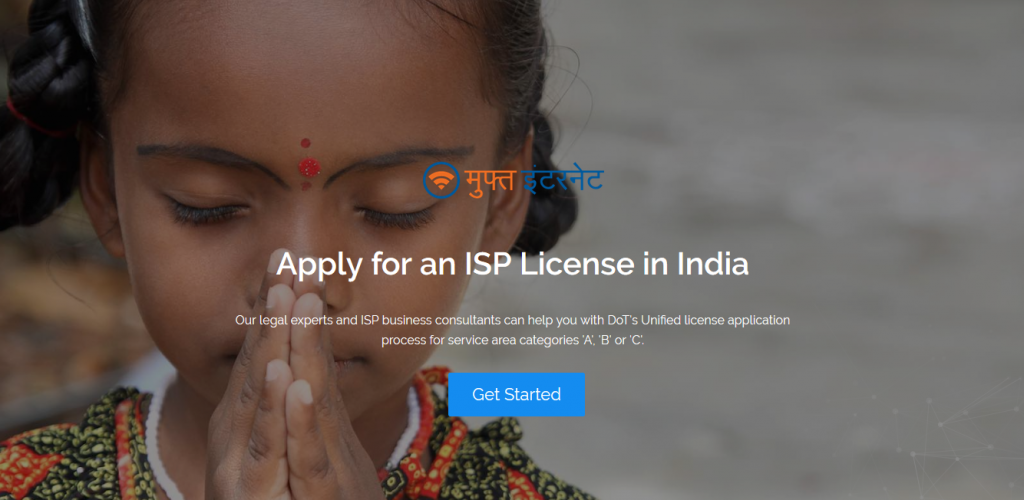
ALSO, YOU CAN READ OUR NEW UPDATES
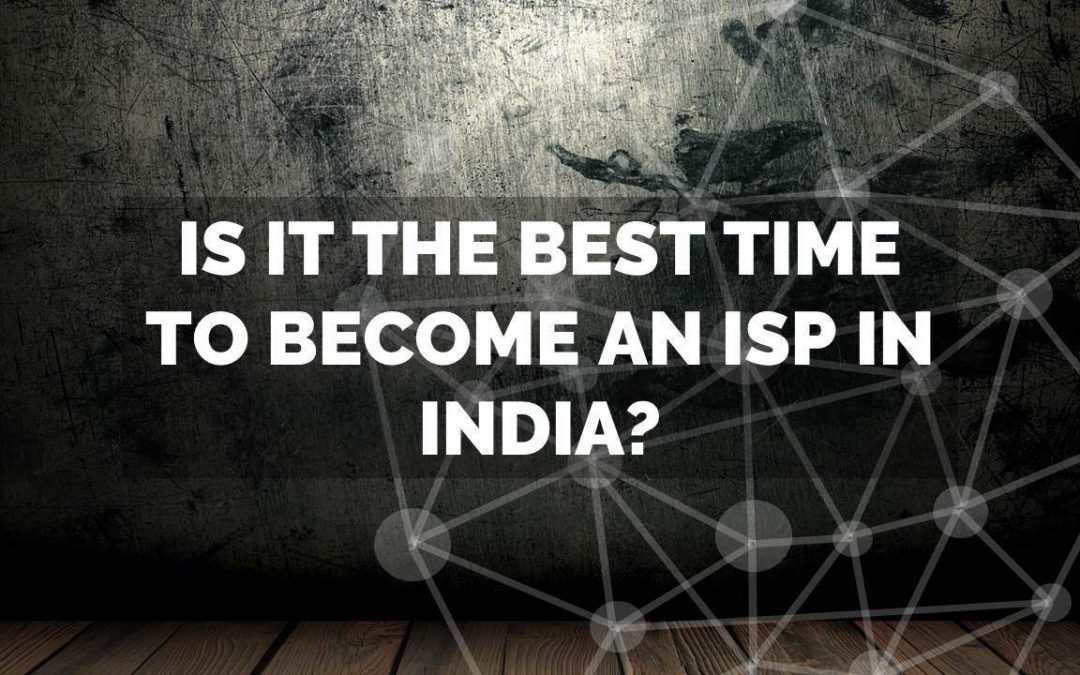
by Jinesh Parekh | Dec 11, 2016 | How to Become an ISP |
In this article we provide information on the opportunities and hurdles to start an ISP business in India
So you want to become an ISP or WISP in India? With this article we’re weighing the pros & cons to start an ISP business in India
As ISP competition and public demand for data increases year on year, this is surely and interesting industry to be in!
Despite having 300 million internet connections, India is still struggling with slow internet speeds and has a lot of room for improvement. India did not invest enough in improving infrastructure & information in the internet industry. Increasing user growth and better public awareness about the benefits of using the internet; India’s internet infrastructure sector is pointing towards rise in demand for data.
Let’s look at the major pros & cons to start an ISP business in India
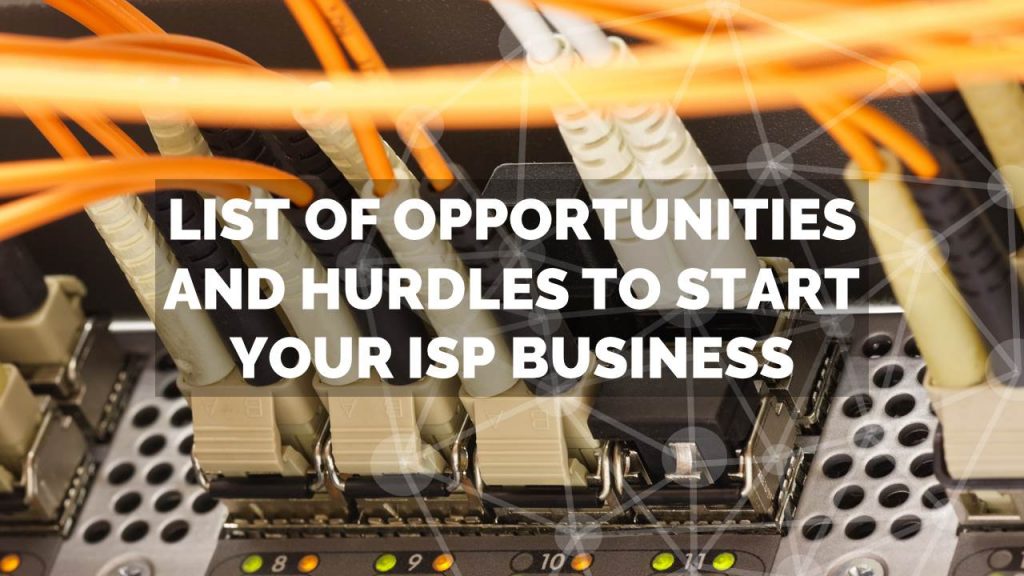
Opportunities: To start an ISP business in India
- The total number of internet connections in India increased 50% between 2014-15.
- India will double its internet user base between 2014-17.
- India is the 2nd largest market for smartphones, with a user base of 220 million.
- Around 80% of internet connections are through mobile internet.
- With mobile internet plans being as expensive as Rs.25
0/Gb, the WiFi internet service providing business is tipped to grow exponentially. (Insert government info and other companies like reliance, etc..stats here of investing and planning to set up x no. of wifi internet zones in india). - It costs just 2 paisa/MB through WiFi whereas mobile data plans charge a minimum of 25 p/MB.
- Further, only 13 % of internet connections are through broadband. This shows that there is still a huge untapped growth potential in the market for broadband and wifi internet services in India.
- However, with the increasing number of internet users, the number of Internet service providers have not increased proportionately, thus, proving ISPs are in shortage. This might be a prime reason why 80% of India is still offline, apart from lack of government funding & initiatives.
- Recent technological upgrades in the industry have also madeit cost effective to distribute & monetize internet for ISPs
- The Indian Internet Industry, valued at just 13$ billion, is expected to be in triple figures by 2020.
That means an 200% increase in valuation, year on year. Those are jaw-dropping numbers for any industry.
Hurdles: NOT to start an ISP in India
With those kind of numbers, you must be wondering why there isn’t an oversupply of aspiring internet service providers already?
Well, becoming an internet service provider in India and setting up an ISP franchise in India is not that easy.
From numerous government regulations and inefficient licensing processes to unavailability of verified sources & prices to buy bulk bandwidth, there are a few roadblocks to become an ISP.
Let’s look at a few: –
- Technical roadblocks to start an ISP business in India: –
The ISP Industry is highly unorganized, making it difficult for small companies to get the correct information about equipment, costing, marketing strategies, business processes, etc. - Educational roadblocks to start an ISP business in India: –
Another roadblock to set up an internet franchise in India is lack of ISP consultants in India. Moreover, there are no special courses or educational programs focusing on how to become an ISP in India. The only information available is online on various blogs or websites, but that’s not enough to start a business, is it?
Without the right consultation or education, starting an ISP business is risky. - Economical roadblocks to start an ISP business in India: –
Becoming an ISP requires quite a bit of capital backing. Numerous one-time cost components are associated with becoming an ISP in India, from licensing to hardware, bandwidth & setup costs. Although ISP License costs are decreasing 0ver the years, it still remains high for SMBs! - Licensing issues to start an ISP business in India: –
Acquiring an ISP license involves a complicated governmental procedure. The first step involves finding the ISP license applicable to you. For instance, if your internet service area is in a small village – you may need a Class-C license. Similarly, if you wish to provide internet service in any metropolitan city in India – you may need a Class-B license. To know which ISP license you need, click here.
Moreover, the application goes through several levels of approval and stringent rules & regulations, making it a tedious process.
It is advisable to get some professional assistance in getting the ISP license in order to rule out any errors & delays. It will make it easier for you to go through the licensing process.
All in all, the statistics show lucrative opportunity in the Internet industry in India for many years to come, although, Government policies and processes are making it difficult to become an Internet service provider. With easing ISP licenses better processes, this might soon become easier for individual to become an ISP in India.
With the right information and consultancy, one can plan his ISP business and optimize it successfully. Click here for more.
Muft Internet is an ISP consultancy firm dedicated to help aspiring, small and mid-sized Internet service providers in India overcome their technical or legal roadblocks.
Plan your own ISP/WISP business, apply for an ISP license, deploy your network or buy bulk bandwidth – our ISP consultants are here to help you grow or become an Internet service provider.
Request a callback using the form below, call us on +91 80802 40000 or email us on [email protected]; and start/grow your ISP/WISP business!
[contact-form-7 404 "Not Found"]
ALSO, YOU CAN READ OUR NEW UPDATES


